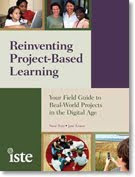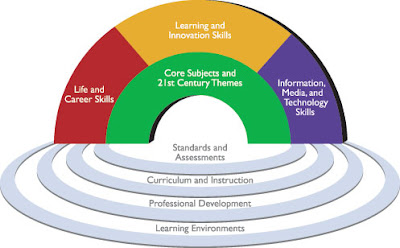
Shared from a new colleague I've met online, Andrew Garcia, from his terrific blog: Educational Paradigms I highly recommend checking it out and reading more about this!



Reflecting on one’s own teaching practice can be either enlightening or humbling. Think I’ll begin with the more humbling act of examining which parts of my teaching were not so much outright failures (as those are easier to recognize and learn from), and instead look closer at what I previously thought were examples of excellence in teaching, but were perhaps hollow when viewed with questions in mind like: “What lasting residue has this experience made in my students’ lives?” and “What musical skills and understanding will they now be able to transfer into their lives as a result?” or even simply “What was the point?”. The uncomfortable answer, I’m finding, is that although I believe I excel at giving students fantastic activities to engage in during the moments they spend in my classroom, I begin to wonder whether those experiences have any lasting impact at all.
Certainly, all teachers imagine and hope that our students will enter the classrooms busting at the seams to ask all kinds of questions and show an edge-of-their-seats engagement in every lesson we teach. We are, after all, each passionate about our own subject areas, or we wouldn’t find ourselves as masters in the field tasked with educating the next generation. However, as sunny a disposition I like to cast on the memories of times with my students, I think that most genuine curiosity and inquisition have remained back in the planning stages of good intentions, and bouncing around in my own head, rather than from the voices of the young musicians in front of me. In truth, I rarely give them the time for deep questioning, dismissing some, giving curt answers to others, but sometimes following the thread of a students’ interest or dilemma within the span of a few moments in the classroom. The exception to this has been when I made room for a new idea, Comprehensive Musicianship through Performance, with a semester-long project I did with my high school chorus students. Because of the hours upon hours of investment I put in with research, planning, questioning, and designing assessments and activities, I built in time for wonderment, inqiry, and created a need to know within my classroom.
In reflecting on this rich experience, which I could write extensively about but won’t do here, I recognize the value of not only investing my time in creating these opportunities for imaging and creating, and therefore, actively questioning with purpose, I resolve to let go of the reins even more this year. I will try to discard the idea that, as the teacher, I am solely in charge of deciding exactly where we will go with our path to learning, and intentionally build in more time for students not only to ask, but for me to listen and redirect their musical education in a way that addresses their need to know and cultivate their natural curiosity.

 favorite musicians learn music. (It certainly isn't from sightreading standard notation... or even any notation at all). In fact... this is a reminder to myself to get the ebook copy of the book "How Popular Musicians Learn" by Lucy Green (foreword by Robert Fripp.... who I was also thinking of borrowing ideas from with the idea of a 'guitar orchestra' and the style in which he composes and creates music).
favorite musicians learn music. (It certainly isn't from sightreading standard notation... or even any notation at all). In fact... this is a reminder to myself to get the ebook copy of the book "How Popular Musicians Learn" by Lucy Green (foreword by Robert Fripp.... who I was also thinking of borrowing ideas from with the idea of a 'guitar orchestra' and the style in which he composes and creates music).
